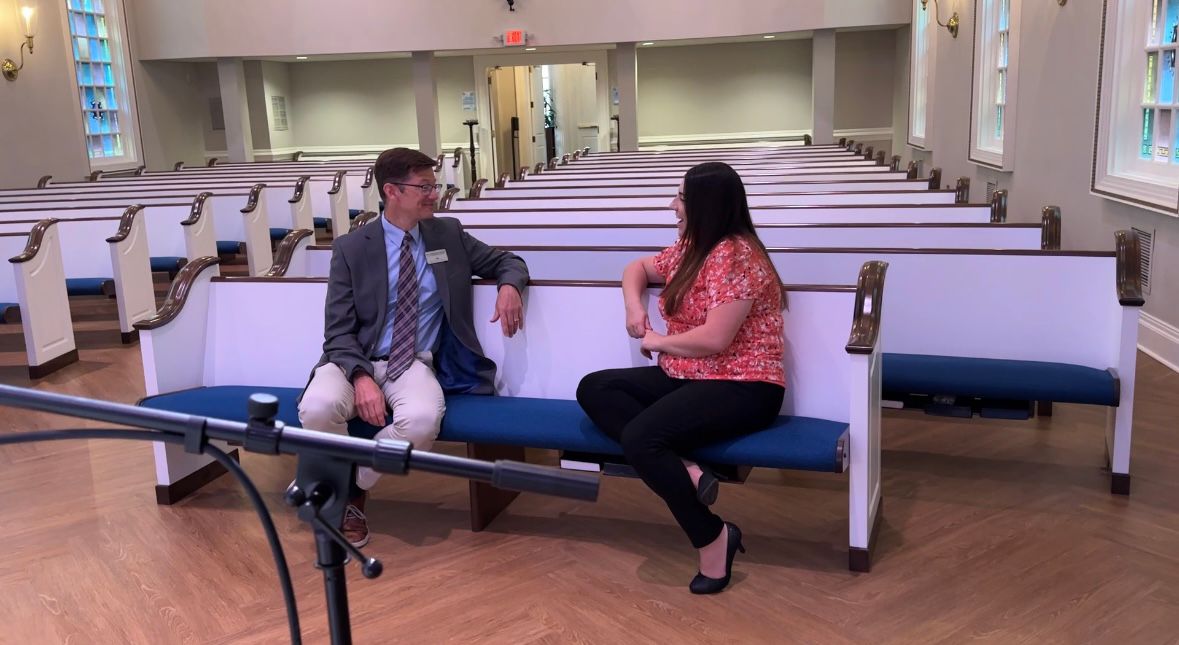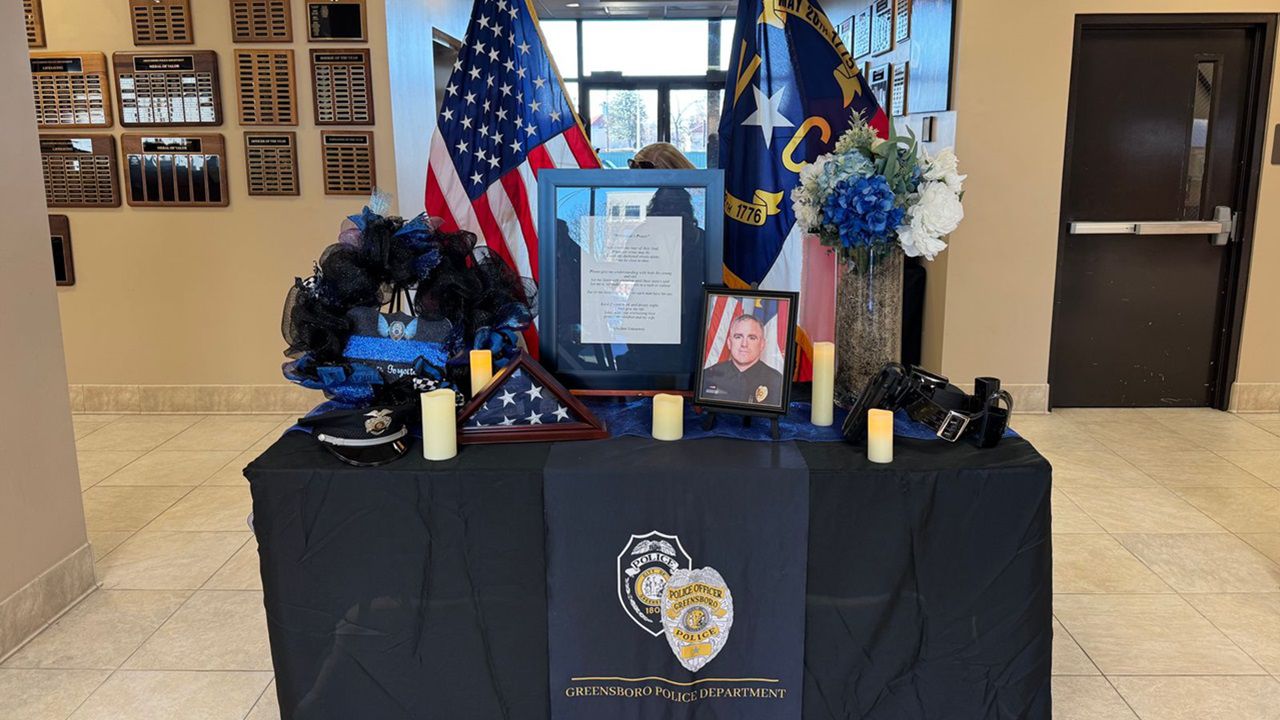NORTH CAROLINA — It has been one month since the Vatican’s document on human dignity was released. One of the topics discussed in the document is surrogacy.
What You Need To Know
- The declaration Dignitas Infinita on human dignity from The Holy See was released last month
- Surrogacy, a topic in the document, is illegal in many parts of the world
- Laws in the U.S. are ever changing regarding IVF and surrogacy
- The Italian Parliament is calling for stricter laws on surrogacy following the declaration
Many couples dream of having a child. The World Health Organization said in a report last year around one in six of the adult population is experiencing infertility, leading many to resort to other options, such as in vitro fertilization or surrogacy to have a biological child.
Amber Lawson is a journey coordinator at Surrogacy Is, an advocacy agency working with surrogates and families expecting a child through surrogates across the U.S.
“I work with them from the moment they're matched all the way to the moment that they have their baby. In between, I am working with them through the medical screening process to obtain clearance, working on legal, helping them with their negotiations. And then once they receive legal clearance, the start of medications all the way through to the positive pregnancy test, seeing their OB and everything in between,” Lawson said.

Lawson has personal experience on the surrogacy journey, as she is a two-time surrogate for international families.
“It's a moment that you'll never forget when they get to hold their baby in their arms,” Lawson said.
She is a mother of three and can’t imagine not being able to have a child of her own, let alone having to travel to another country to have a surrogate help her start her family.
“I think that if I put myself in their shoes and thought of the depths that they had to go through to do that, it would be terrifying. And then to think of their country, where you could be punished later on for something that you did. And all you want to do is have a baby,” Lawson said.
Surrogacy is illegal in many countries in the world with punishment, such as legal fees or jail time as consequences for having a child via surrogacy. Many religions also do not agree with surrogacy.
The Declaration of the Dicastery for the Doctrine of the Faith “Dignitas Infinite” on Human Dignity released in April quotes Pope Francis:
“The path to peace calls for respect for life, for every human life, starting with the life of the unborn child in the mother’s womb, which cannot be suppressed or turned into an object of trafficking. In this regard, I deem deplorable the practice of so-called surrogate motherhood, which represents a grave violation of the dignity of the woman and the child, based on the exploitation of situations of the mother’s material needs. A child is always a gift and never the basis of a commercial contract. Consequently, I express my hope for an effort by the international community to prohibit this practice universally.”
The document continues to say in part the practice of surrogacy violates the dignity of the child and that the desire to have a child cannot be transformed into a ”right to a child,” which “fails to respect the dignity of that child as the recipient of the gift of life.”
Dr. Chris Franks, an Owen D. and Mattie Holt McPherson Associate Professor of Religion and Philosophy at High Point University, said IVF and surrogacy has become a more popular conversation in religion because of modern technology, especially in the Catholic Church.
“In particular the Vatican has been concerned to uphold what they see as the sanctity of the way marriage is designed to procreate, which they see as tied to the union of spouses and even the dignity of the child to be born from the womb of its own mother, and that sort of thing has been a sort of a teaching of the church ever since modern surrogacy became technologically possible,” Franks said.
He said although each religion is different in how surrogacy and IVF is viewed, the Catholic Church has gone against the idea of a third party being involved in the process of the conception of a child, and the document is just reiterating preconceived notions.
“I think one of the issues that the Catholic Church in particular has emphasized in its teachings on this has to do with what this document talks about, dignity. And one of the things that they've tried to emphasize that is that in their teaching, human dignity is not just found in the human will or reason or ability to choose, but in human embodiment as well. And so kind of the way bodies are, are gifted by God to work is part of what human dignity is, according to Catholic teaching over the last several decades. And so there's an anxiety or a concern, at least in the Vatican, to make sure that the will the body has a meaning besides just whatever the will chooses to apply to it. And they want to protect and defend that perfect right,” Franks said.

Since the document has been released, the Italian Parliament (where surrogacy is already illegal) is looking to create stricter punishment for those who go abroad to have children via surrogacy.
“I don't feel like what we do in the United States and the regulations that we currently have, where our agency, for example, will do background checks, mental health screenings for egg donors. They'll do genetic testing. This way there's a system and there's a process, and it goes deeper than that. But for what we do here, it's a lot safer. I feel like we have a great policy and I, I don't think that there should be restrictions on anyone having a child. Nobody should be restricted to have the opportunity to go through IVF and be able to have their own children,” Lawson said.
The document on human dignity also says surrogacy violates the dignity of the woman. As the woman is “detached from the child growing in her and becomes a mere means subservient to the arbitrary gain or desire of others. This contrasts in every way with the fundamental dignity of every human being and with each person’s right to be recognized always individually and never as an instrument for another.”
“There's nothing more humbling or gratifying. Whenever you can help a family have a baby of their own. And I didn't realize how impactful it was until I was there and had the experience myself, but I found out that it was something I want to do the rest of my life,” Lawson said.
Although, Lawson cannot be a surrogate again herself, her work at Surrogacy Is is helping families build a family to continue on their last name, memories and a dream.
Lawson still stays close to the families she was a surrogate for and encourages others to look into it if they would be a good fit to be a surrogate.
Surrogacy laws also differ state to state within the U.S., with laws even changing in states such Michigan within the past month.








